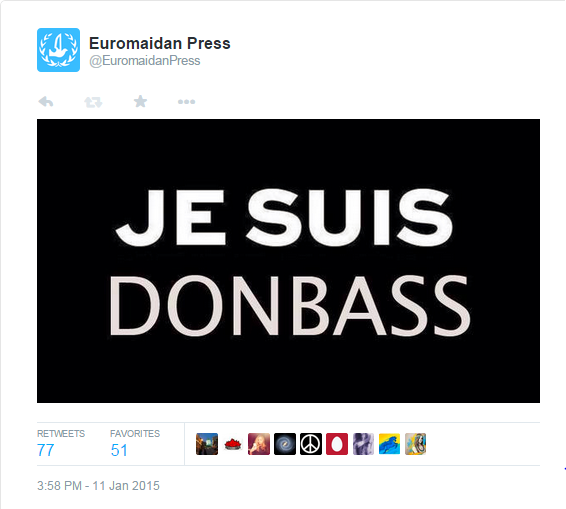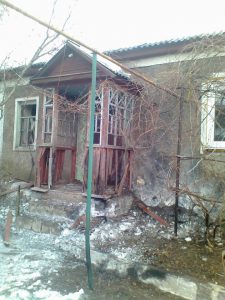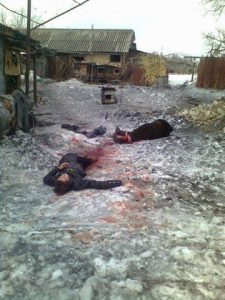On January 11, 3.7 million people took to the streets of cities of France, marching against the terrorist attack on the Charlie Hebdo satirical magazine that took the lives of 17 people. 40 international leaders took place in the Unity March, expressing their condolences to the people of France. British Prime Minister David Cameron predicted Europe would face the threat of extremism "for many years to come," while his Italian counterpart Matteo Renzi pledged that the continent "will win the challenge against terrorism." US president Obama didn't attend, but the White House announced it is organising a February 18 summit on how to fight "violent extremism around the world."
One day earlier, a little over 2 500 kilometers away, in the East Ukrainian village of Kryakivka, a 14-year-old girl, her 50 year-old mother and 64-year-old grandmother were killed by BM-21 Grad rockets from illegal militant formations backed by Russian forces.
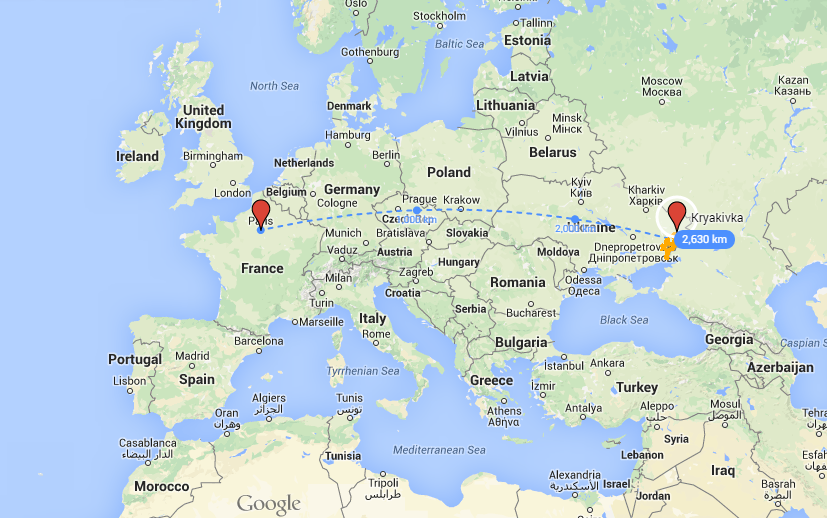
The so-called "separatist forces" were shelling the village from 3 to 6 AM. "So-called" because it's impossible to establish which one of the Russian-sponsored and reinforced militant formations were at work, and whether this was the Russian army. Police officers that arrived at the scene found the bodies of the girl and grandmother in the yard, and the mother in house. The whole family is killed.
While the police officers were examining the scene, the separatist militants opened fire at the Ukrainian police, attempting to prevent an investigation. They had a tank in the distance, but volunteer defense battalions called Kyiv and Aidar rebuffed the forces and allowed the police to conduct the investigation and collect the bodies.
The separatist militants were firing at territory under Ukrainian control, violating a ceasefire regime announced on September 5. The got the Grad from a huge military base in Rostov from where Russia sends troops and weapons into Ukraine. These kinds of attacks happen every day: the militants fire on Ukrainian positions from the charred and abused piece of land that Putin is attempting to carve out of Ukraine, Ukrainian troops either fire back or not, depending on the orders. Almost each day, servicemen are killed. Civilians are killed, too. At least 4 200 of them, according to a December 15 UN report. The total losses of civilians and Russian and Ukrainian soldiers are around 11 500
.
While the rally in France was taking place, the capital of Donbas, Donetsk, was under fire so severe that the locals remembered worse shellings only during the summer in times of full-fledged battles. In the last few days, the Russian-backed forces have become much more active, and there's no surprise: the 11th "humanitarian convoy" from Russia had entered Ukraine on January 8. Like all the other convoys, it was unchecked by Ukrainian authorities and the IRCR. Like all the other convoys, it brought reinforcements and weapons to the separatists and Russian troops. But Russian weapons have no problem crossing the border without any convoys: Ukraine's national security and defense council counted that 104 such "convoys" crossed the Ukrainian border in November 2014 alone.
While rallies in France gather media attention, Putin pumps even more ammo and troops into Ukraine, escalating a conflict that he himself caused. With the recent release of the Correct!v investigation with their interviews with Donbas locals, there remains no doubt that MH17 was shot down by the Russian army with a Russian Buk that were sent in by the Russian president into Ukraine to destabilize the country, taking the lives of 298 international passengers. Each day, Ukrainian volunteers and servicemen fight terror on European soil. Every day, the hospitals intake new wounded soldiers whose lives are forever changed. Every day, family members grieve the deaths of their loved ones killed in attacks by Russian forces and Russian volunteers that come to fight for Putin's make-believe land of "Novorossiya."
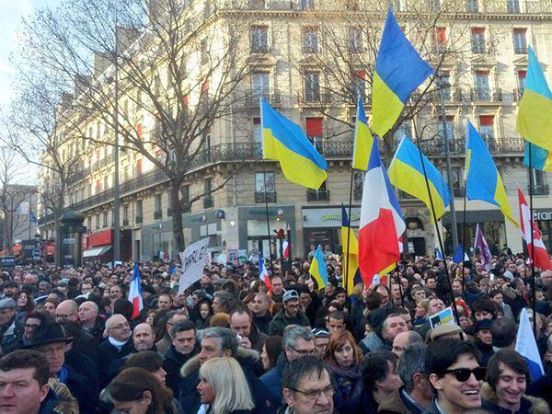
Ukraine grieves for the victims of Charlie Hebdo. Ukrainian flags were of no little abundance at the Unity March in France. But there is also a question is in the air: are Europeans ready to say #JeSuisDonbas and #JeSuisUkraine to get rid of terrorism on the continent?
